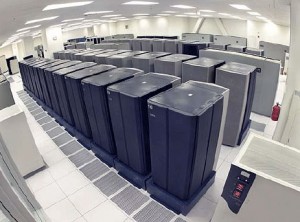 Today, businesses around the world have more options than ever before to streamline their storage efforts. With the vast amounts of data that businesses create and store, it’s important to have a clear corporate policy and IT strategy in place that supports your business growth. Each of these different models has unique advantages and disadvantages, and there is no right answer. It depends significantly on your business model, professional goals, and the human and financial resources at your disposal. Here’s a closer look at the different data storage options that companies have today, and the factors to keep in mind when considering each option.
Today, businesses around the world have more options than ever before to streamline their storage efforts. With the vast amounts of data that businesses create and store, it’s important to have a clear corporate policy and IT strategy in place that supports your business growth. Each of these different models has unique advantages and disadvantages, and there is no right answer. It depends significantly on your business model, professional goals, and the human and financial resources at your disposal. Here’s a closer look at the different data storage options that companies have today, and the factors to keep in mind when considering each option.
On Site Storage
The old-fashioned approach to data storage is buying and maintaining servers on your business premises. Businesses opt for this approach for many reasons. If your data storage needs are small or you don’t have anyone on your team with technical expertise, this can seem like the easiest answer. On site storage has the advantages of being in physical control of your servers at all times. Potential downsides include the need for facilities to house your servers, along with climate control and security. It’s also important to have onsite staff with the expertise to manage technical needs, software upgrades, and more.
Housed Servers
An option between servers stored in your own office and migrating your data fully to the cloud is using managed servers. Managed servers are a scenario where you buy or rent servers that are kept in a facility and managed by a company providing dedicated services. Often, these buildings provide all of the facilities management needed to keep your servers safe and functioning well, while supplementing with technical support and other bundled services. Whatever services the company doesn’t offer in-house are typically provided by a partner. Housed servers often provide companies a waypoint on their journey into cloud storage, or become part of a company’s planned for blended enterprise data management.
The Cloud
Companies are increasingly storing their data on the cloud, which enables them to access their information from anywhere. The cloud is a term that’s widely used in business today, but simply refers to the act of storing your data on another company’s servers. These servers have been configured to allow users to access them from a wide range of mobile devices, as well as any laptop or computer. The cloud offers the benefits of being highly scalable, and giving businesses the option to customize their packages by paying only for what they use. Ongoing, practical management of your storage policies and space can keep your costs down while offering your team maximum flexibility.
Are you currently considering the best options for your company’s enterprise data management needs? With the wide variety of approaches on the market today, from in-house servers to migrating fully to the cloud, it’s possible to select one or more server solutions that are right for you.
About the author: Ken Demers is an IT and cloud expert working in St. Paul, Minnesota. He recommends interested companies visit www.togglebox.com to learn more about their options for cloud and other forms of enterprise data storage.
Learn more
Cloud hosting stands out as a highly attractive, unique hosting platform. It allows the organization to host a website or applications on clusters ...
No one likes to be accused of walking around with their head in a cloud. However, keeping your sensitive business info in the cloud is a whole oth ...
Just thought of creating an online business to start making money but are confused as to how to make it available to the public? Then look no more ...
Do you have difficulties in accessing your workstations? Are you experiencing data loss due to malware? Do you have occasional problems accessing ...
As a business owner, you probably know how important it is to back up your data on a regular basis. It helps you keep information even if your ser ...





